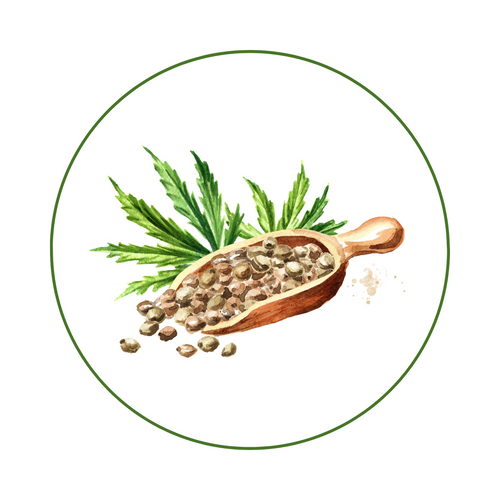Hemp farming in the high Rocky Mountains presents both unique advantages and challenges for growers. The weather is obviously a massive challenge, but what are the benefits, and how do they stack up against the weather issue?
The weather is one of the biggest challenges of hemp farming in the high Rocky Mountains. A few years back, we had a “100-year event;” on Labor Day, temperatures plummeted to 12 degrees and dumped 12 inches of the white stuff. Nothing survived, and nothing could have been done in a financially feasible manner to prevent it. It’s rare when that happens, but it does happen. Beyond that sort of craziness, our average temps swing wildly. It is not unusual to have summer morning temperatures in the 40s and afternoon highs in the 90s. Many plants cannot handle those swings, but hemp can. Our best line of defense is pretty obvious. Plant varieties that finish fast! Of course, it’s not that easy.
The availability of good hemp genetics is pretty darn weak in this new industry. Most seeds are unstable, resulting in fields that don’t grow or mature uniformly. It is absolutely critical in our region to have harvest in by mid-September. The plants have often been poorly bred, leading to a hermaphroditic crop. This leads to a pollinated crop that offers less resinous flowers, which is not ideal. These issues have forced us to breed our own varieties. The availability of well-bred seed is getting better though! We’re excited to trial some new breeds this season.
Despite these challenges, there are also HUGE advantages to hemp farming in the high Rocky Mountains. One of the most significant benefits is that this region has relatively few pest issues. This is because pests that typically affect hemp plants, such as spider mites and aphids, do not thrive in the cold climate and the high altitude of the Rockies. As a result, farmers can focus their resources on other aspects of crop management, such as irrigation and fertility, rather than spending significant amounts of time and money on pest control. The same is true for disease issues. For example, many farmers deal heavily with Botrytis, but we don’t see it here.
Another advantage of hemp farming in the high Rocky Mountains is that the region is well-suited for organic farming practices. Our soils are not depleted because virtually zero cropping is happening here. This is only true in the fertile valleys, of course, but our soils are rich in microorganisms and organic matter. Due to the limited pest, disease, and fertility issues, farmers can grow hemp using natural and sustainable methods, which can be more cost-effective and environmentally friendly. Organic farming practices also have the potential to produce higher-quality hemp products, which can command a premium price in the market.
The lack of other farmers in the high Rockies is a very understated advantage. For hemp, in particular, this means less chance of being pollinated by neighboring crops. With the push towards hemp for grain and textiles, pollen is increasing in the air elsewhere. This is difficult for hemp farmers, but it’s easily managed in the high Rockies.
In conclusion, hemp farming in the high Rocky Mountains presents challenges and advantages for growers. While the weather and short growing season can make it challenging to cultivate hemp in this region, the lack of pest/disease issues and opportunities for organic farming practices can also be beneficial. Overall, hemp farming in the high Rocky Mountains requires careful planning and management but also has some huge advantages.




Leave a comment
All comments are moderated before being published.
This site is protected by hCaptcha and the hCaptcha Privacy Policy and Terms of Service apply.